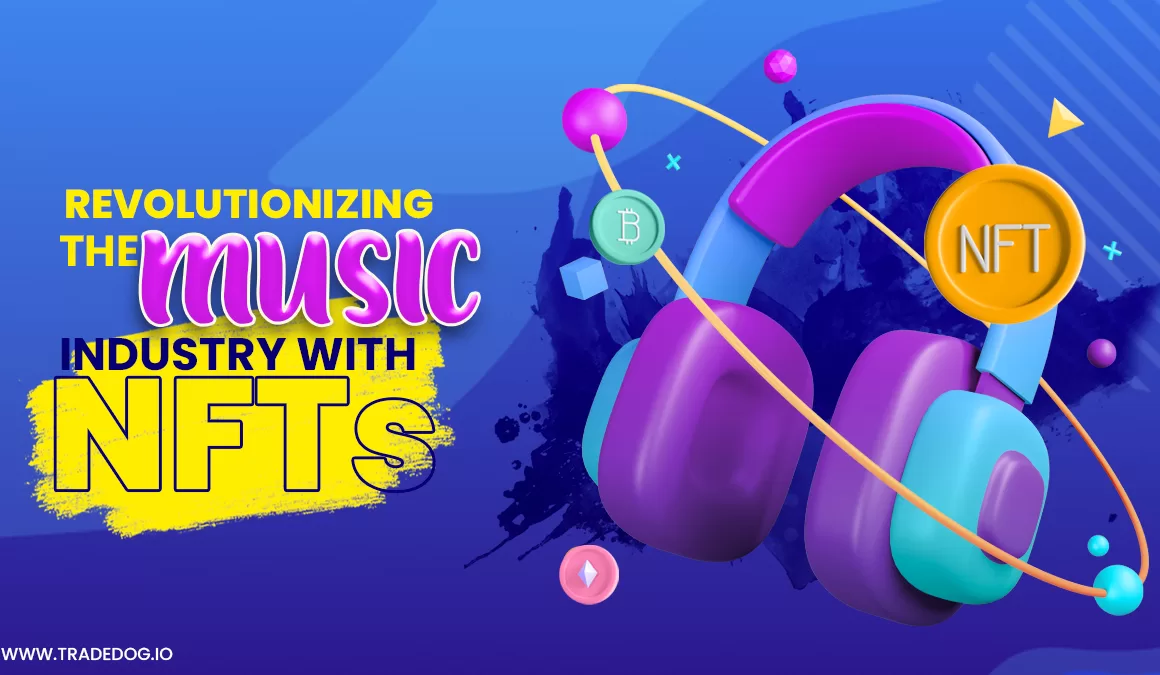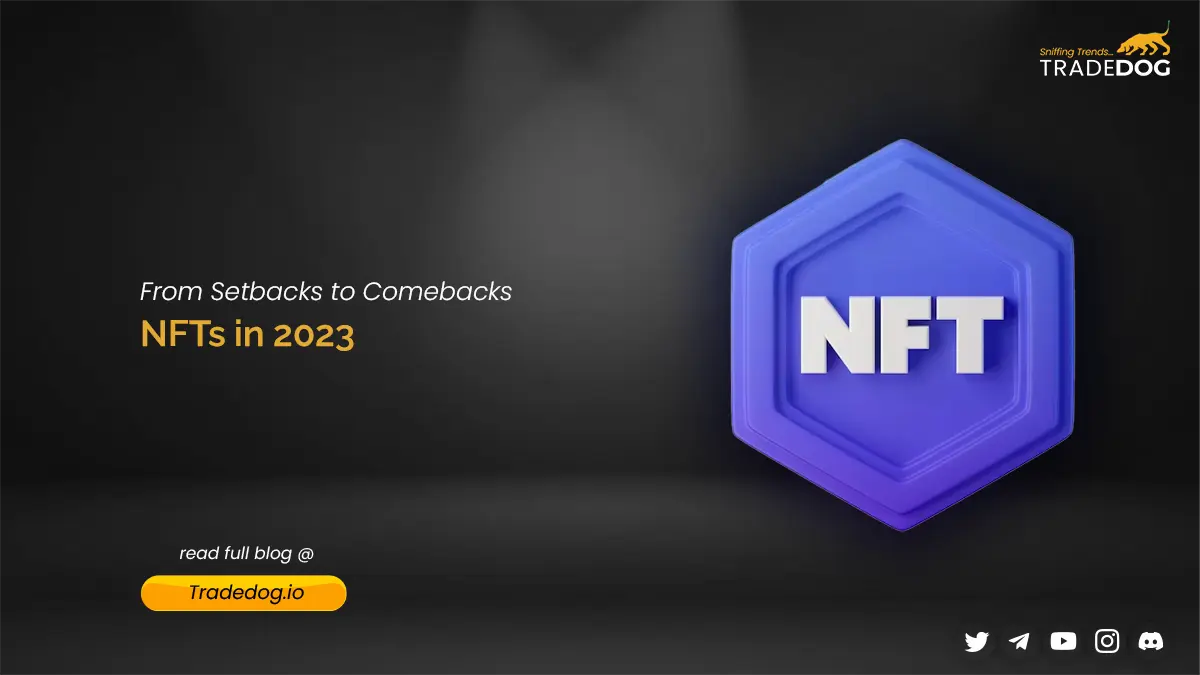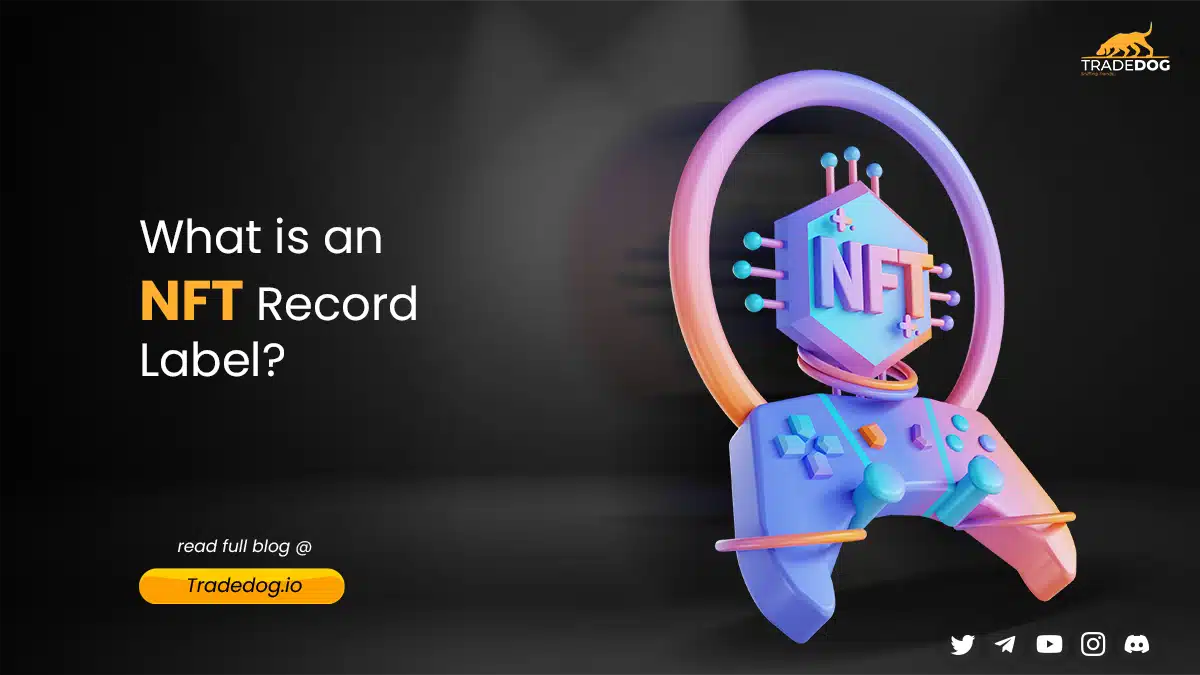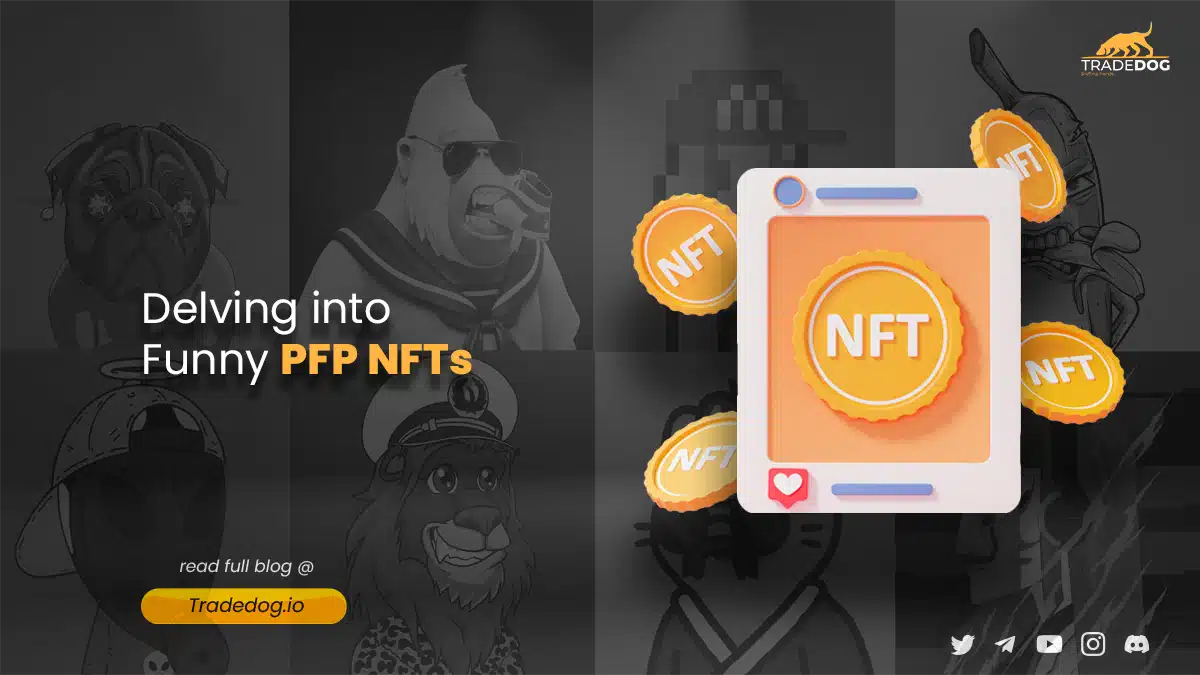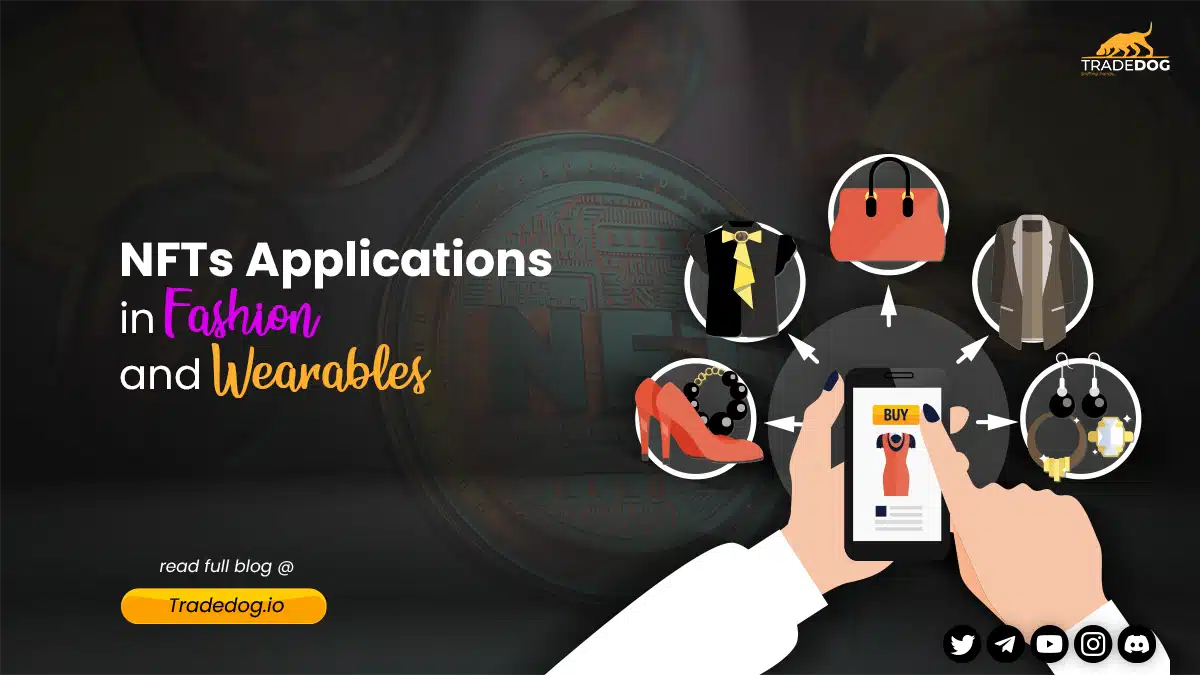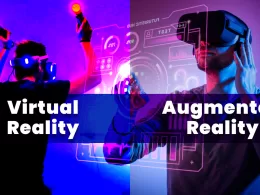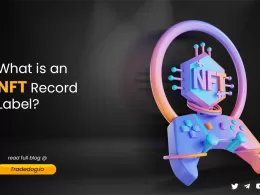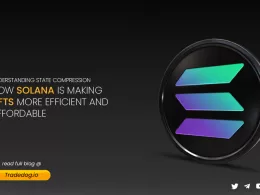Quick Links
In recent years, musicians have been able to gather a sizable online audience thanks to the emergence of social media and digital music streaming and downloadable services like Apple Music, Spotify, Youtube, etc.
By 2020, the global music market had generated $21.6 billion in revenue, representing the sixth consecutive year of industry growth with a 7.4 percent CAGR increase from 2019.
It is surprising that music artists are not fairly compensated for their skill and artwork, despite the fact that the music industry has experienced significant growth in recent years. A survey found that the majority of the top 0.8% of musicians on Spotify make less than $50,000 per year from streaming.
What is a Music NFT
Digital assets known as “music NFTs” are used to demonstrate ownership or the legitimacy of a particular piece of music-related content, such as a song, album, concert ticket, or even a tweet.
These NFTs are stored on a blockchain and are singular, making it impossible for them to be divided or duplicated. NFTs are used in the music industry to give artists new sources of income and give fans new ways to interact with and support their favorite performers. An NFT’s ownership can be changed from one person to another, with the potential for value growth over time.
Artists can generate new sources of revenue by selling these NFTs while keeping the freedom to edit the content as they see fit. The musician also has complete control over how the music is used by the NFT buyer.
Remembering that different NFTs can exist for the same musical composition is crucial. Only legitimate owners will have access to exclusive content, such as music, videos, album artwork, and other media, thanks to the storage of NFTs on a blockchain.
Problems in the Music Industry
The music industry has faced more difficulties recently, despite the fact that musicians in the past may have received widespread acclaim for their work. Artists today must navigate a more complicated landscape in order to monetize their work due to the decline of physical record sales and the rise of online streaming platforms.
Despite having a larger audience, online streaming services frequently only pay artists a small amount of money regardless of the existence of millions of fans. Many musicians have expressed their dissatisfaction with the industry’s limited financial opportunities as a result.
Traditional revenue and ownership models in the music industry can be rethought with the help of music NFTs. Artists can increase fan engagement and cut out middlemen like record labels by using NFTs. It is becoming increasingly evident that NFTs have the potential to offer significant solutions to the problems faced by artists in the current music industry through various examples projects like FrequenC, Animal Concerts, etc who are actively working towards disrupting the music industry with the power of Web 3.0.
Types of Music NFTs
The application of NFT in music has transformed the industry and is shaping its future. It is worth noting that the current state of the music industry includes numerous challenges, such as unequal pay distribution, as well as a lack of proper community engagement. There are also intermediaries who control various aspects of the industry. With their distinct capabilities, NFTs are transforming the music industry for a better future.
Musicians can monetize their work by creating music NFTs that can be traded on any NFT marketplace that accepts them. Artists can earn higher royalties as ownership rights are recorded on the blockchain and cannot be tampered with, thanks to the new trend of music tokenization emerging in the industry. As a result, whenever music NFTs are sold, their creators receive the remuneration that they are due. Music fans, on the other hand, can show their love and support for their favorite musicians while also benefiting financially by purchasing these NFTs.
Some types and utilities of NFTs in the music industry are as follows:
Ticket NFTs
Ticket NFTs are transforming the lives of musicians and music fans. Ticketing fraud can be greatly reduced by distributing ticket NFTs to the audience. Unlike paper tickets, which have no value other than on the day of the concert, ticket NFTs have long-term value. These NFTs are resellable at a standard price.
Video NFTs
NFTs of concert or song videos can be minted and sold at standard prices. Fans who own these NFTs can not only capture moments but also resell them at desired prices.
Songs and Music Album NFTs
If you want to own your favorite artist’s music, you can do so by owning NFTs. Many artists and musicians have begun to release full songs and albums as NFTs.
Autograph NFTs
With the introduction of NFTs in music, music fans can now own autographs of their favorite musicians or artists in the form of NFTs. The autographs of their idols are valuable to music fans. As a result, holding them as NFTs increases their value and allows them to be preserved in perpetuity or sold for higher prices.
Artwork NFTs
The music industry relies heavily on artwork. Album covers, posters, and concert images are examples of digital artworks in the music industry. All of these can be converted into NFTs and sold for a profit.
What can these Music NFTs be used for?
Other benefits of NFTs for the music Industry include
Community Building
To fully utilise Web 3 and the possibilities it offers, a community must exist.
NFTs can be used to increase community participation by organising NFT airdrops of upcoming music or albums, hosting quizzes and competitions based on previously released work, and collecting vital feedback directly from your fans.
NFT DAOs
A DAO, or Decentralized Autonomous Organization, is a community-led organisation that lacks centralised authority. Aside from NFTs, a DAO enables you to add value to your fans. You can convert a fan community into a DAO once it has been established.
Fans are the heart and soul of any artist; they are the fuel in the engine, and their contributions to projects should be recognised. On the financial side, DAO fosters a sense of belonging, ambassadorship, and more profound devotion.
Through NFT projects and Web3 technology, artists can incentivize their audience to endorse their work and contribute to the growth of their fandom. The value of artists’ NFTs or social tokens may rise as the community grows, balancing rewards between artists and their followers.
NFTs and Exclusive Merchandise
Music NFTs can provide additional benefits in addition to their inherent value. They can be linked to physical autographed CDs, music NFT holders’ song royalties, backstage passes, special remixes, and private parties. And this is just the surface of how to use NFTs to reward your fans for investing in your success.
Artists and NFT Albums
Kings of Leons
On March 5th, 2021, Kings of Leon released an album as an NFT, making them the first band to do so. The band issued three tokens: one for a special album bundle, another for live concert benefits such as lifetime front-row tickets, and the third for only audio-visual art. The band was paid 820 ETH, which was worth $1.45 million at the time.
3Lau
Justin David Blau, better known by his stage name 3LAU, is an American DJ and EDM producer who released 33 exclusive music NFTs redeemable for his album Ultraviolet. Ultraviolet was released for the first time in 2018. 3LAU released the NFT collection to commemorate the album’s third anniversary.
The top 33 bidders in the exclusive music NFT collection were divided into tiers with varying rewards, and the top bidder received an NFT redeemable for personalized music by 3LAU, a limited edition vinyl of Ultraviolet, access to unreleased music on 3LAU’s official site, and all 11 songs from the Ultraviolet album. 3LAU’s music NFT debut was one of the most successful, earning the artist over $11.7 million.
Conclusion
Blockchain-based applications, such as NFTs, are a growing trend that has achieved the interest of a number of large corporations. NFTs offer promising opportunities for the music industry as well as numerous benefits for artists and music fans.
Using NFTs in the music industry allows for better remuneration for the artists as well as the vendors associated with them. This is achieved due to the elimination of unnecessary middlemen who eat away the majority of revenue generated through events like concerts in form of commissions.
With the introduction and use of Blockchain and NFTs in this sector, there is no need for these middlemen as all the transactions can be executed using smart contracts which in turn increases the overall revenue of the righteous parties through direct commissions from the NFT ticket sales itself.
The use of NFTs in this domain also creates a better community of like-minded individuals who support and can take part in key decision-making for artists as well as events at large creating a decentralized as well as fair music and entertainment ecosystem.





